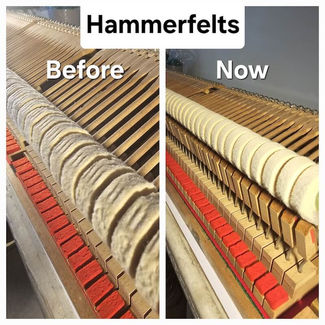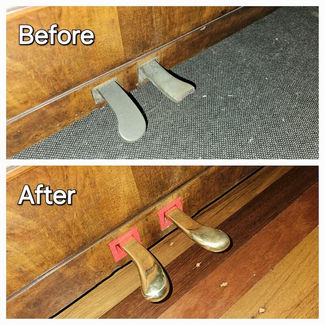Your Old Family Piano Dilemma!
3 Key Questions To The Right Choice
Whether you've got an old piano that's barely been touched for years, or a family heirloom recently handed down, there’s a dilemma of not knowing what it’s worth or the cost of restoration.
When deciding whether or not to restore your piano, there's several key questions worth considering...
For more info, please watch the "Before You Restore" video.
" How can I be sure it needs a restore? "
FAMILY PIANO CONNECTION
Your piano is not just an instrument, it holds memories and family history that's worth cherishing. Restoration can breathe life back into your piano and provide joy to another generation
OLD ANTIQUE OR UNIQUE
Although old pianos aren't considered as having "antique value", the desire to restore them is still worth considering if the foundations of the instrument are sound. Book in a quote to learn more!
NOT READY TO GIVE UP
Forming an emotional attachment to your piano is very normal, so the thought of throwing it out sounds ludicrous. If you get a sense your piano deserves a new lease on life, restoration could be the key!
"Our Restored Piano Sounds Better Than New!"
Helen Lancaster - Brisbane

Helen Lancaster
A Complete Piano Restoration
★★★★★
Nathan agreed to take on a total restoration of my Yamaha G1 small grand. It was a huge job, lovingly done, and I was kept informed all the way. The result is better than new - a lovely tone, and excellent regulation. With a professional background of employing piano tuners to care for performance and teaching instruments, I would not hesitate to recommend Nathan’s work.
On-Site Restoration Inspection/Quote
All The Answers You're Looking For!
By the end of our consultation, you'll know exactly what your piano’s worth, it's age, quality, condition, it’s potential lifespan and future market value. You'll be given a couple of pricing options for restoration or tuning to help clarify what’s worthwhile doing.
An on-site inspection fee around Brisbane is $190, which is fully credited toward any restoration work should you decide to proceed.
Common Piano Restoration Questions
Don't be left wondering... Get answers now from your piano expert.







